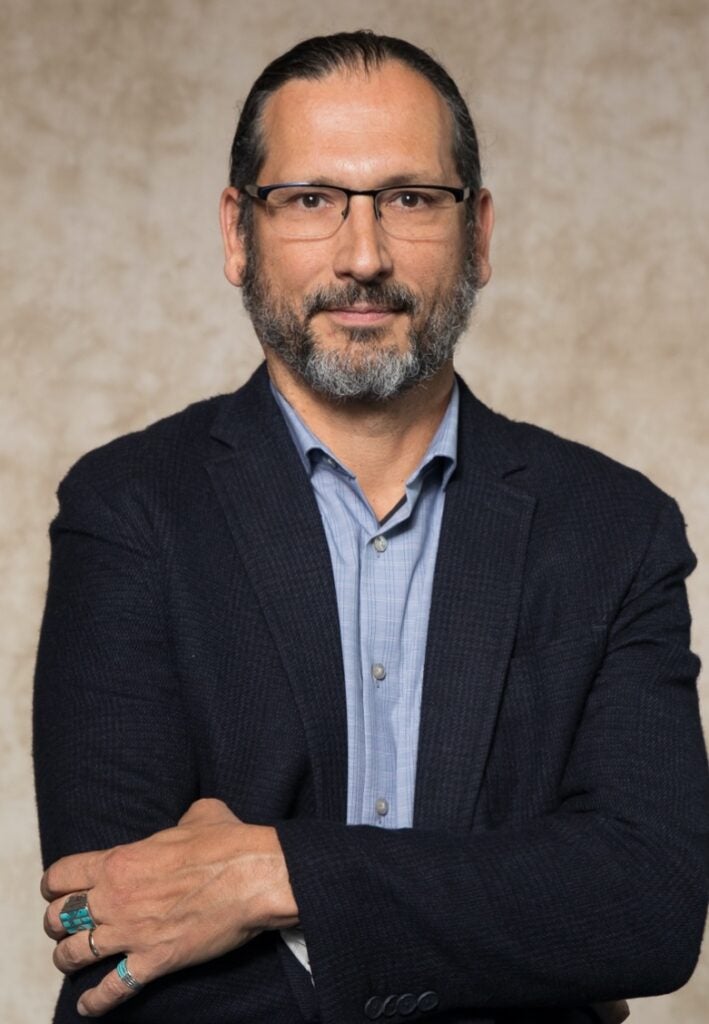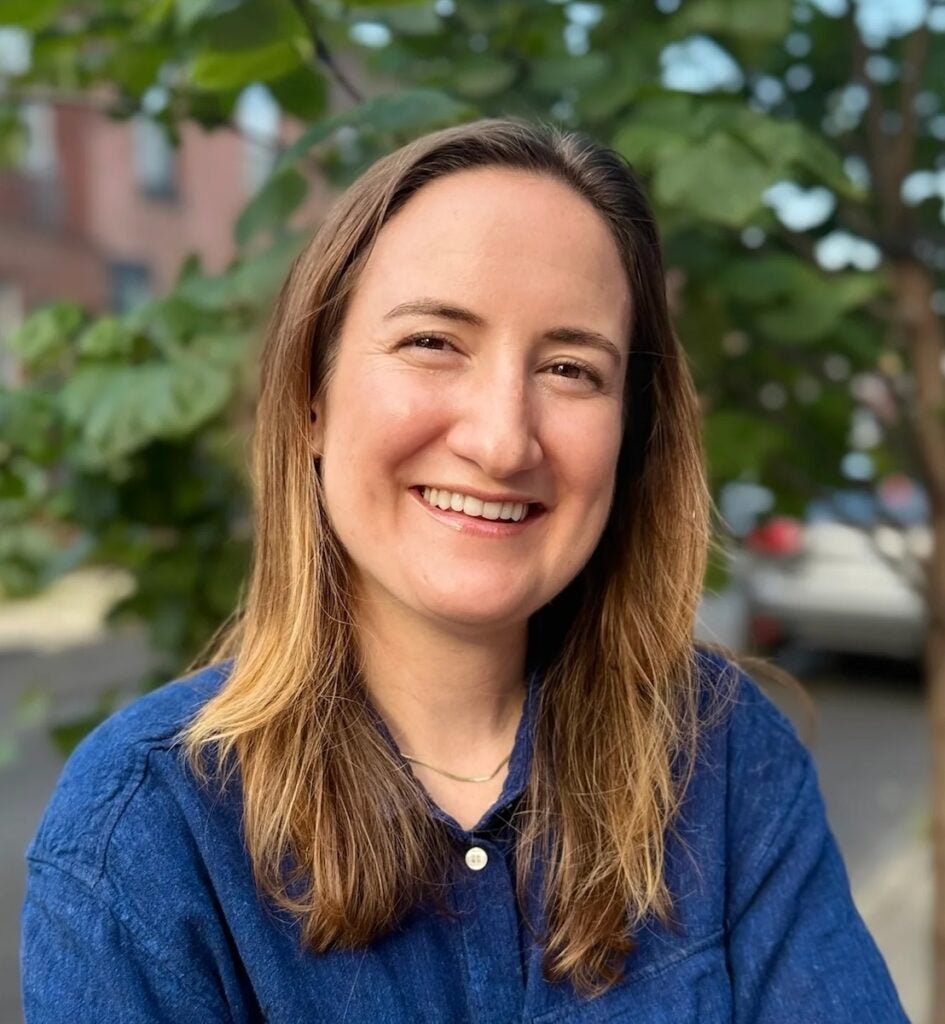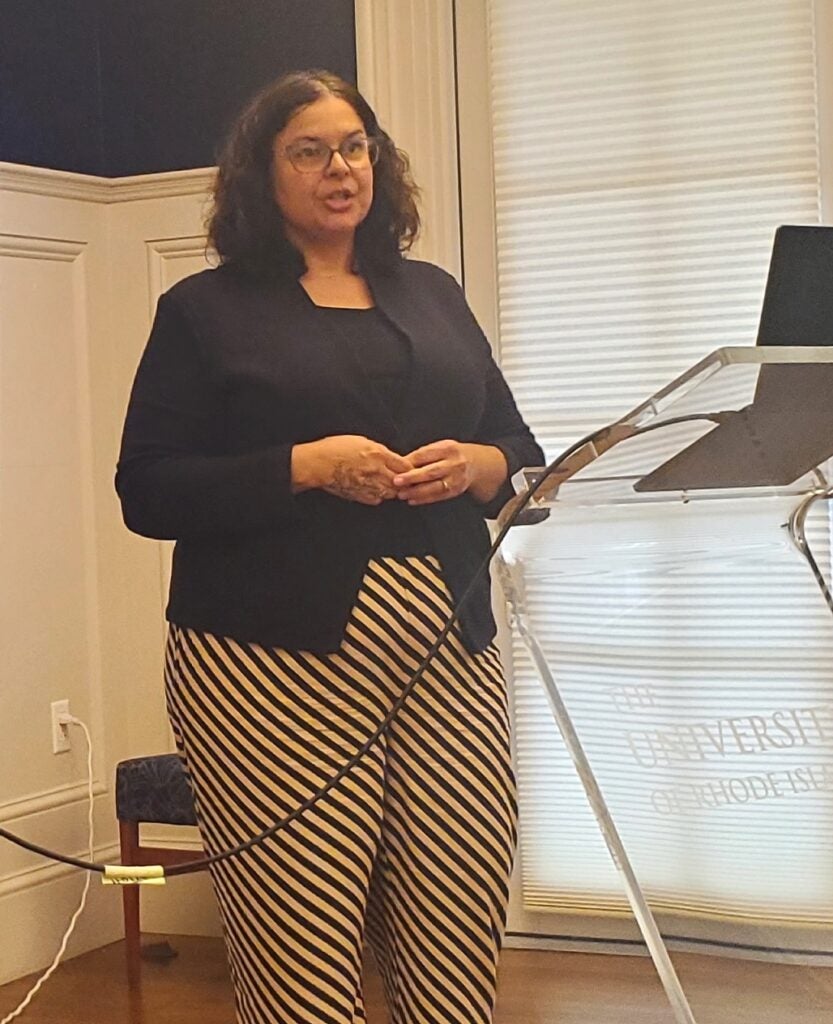The University of Rhode Island’s College of Health Sciences welcomes seven new faculty members for the 2025-26 academic year. The faculty represent diverse backgrounds and areas of expertise.
David Schnyer, professor and department chair, Department of Psychology

After working 19 years at the University of Texas-Austin, the last six as chair of the psychology department, Schnyer became a professor and chair of URI’s Department of Psychology this fall. He plans to elevate the department’s ranking, as he was successful in doing in his previous position.
At the University of Texas, Schnyer collaborated with experts from the public and private sectors as part of the Transforming Research and Clinical Knowledge in Traumatic Brain Injury (TRACK-TBI) multisite study. The research collected and analyzed clinical data on subjects across the injury spectrum, along with CT/MRI imaging, blood biospecimens, and detailed clinical outcomes. Schneyer is attempting to establish a new site in Rhode Island in collaboration with neurosurgeons at Bradley Hospital.
Schnyer will continue his work with individuals living in the community, utilizing wearable and digital technologies to better understand how physical and emotional adversity, biology, and the environment affect the health and well-being of children and their families.
Wenhui Feng, assistant professor, Department of Public Health

Feng joined the faculty at URI after spending six years as an assistant professor of public health and community medicine at Tufts University.
“URI has a lively culture with a strong sense of community, which is evident among faculty, students, and staff,” said Feng. “I especially appreciate that URI is a land grant university with a mission to serve the state. The focus on connecting education, research, and outreach is deeply related to my research, which aims to encourage healthy eating through evidence-informed policy approaches.”
One topic Feng studied at Tufts, and will continue to research at URI, is the role dollar stores play in public health and food insecurity.
“Dollar stores have been the fastest-growing retailers over the past decade, particularly in rural areas,” said Feng. “My study examines the intersection of consumer food purchase behavior and the strategies that consumers with limited budgets use to purchase food, utilizing dollar stores and other non-traditional food retailers.”
April Highlander, assistant professor, Department of Psychology

Highlander’s research focuses on the psychosocial mechanisms underlying symptom presentation and unequal mental health outcomes among children and families experiencing stress and adversity.
Prior to joining the URI faculty, Highlander completed two postdoctoral fellowships at Brown University, in child mental health, and childhood stress, trauma, and resilience.
Highlander is partnering with the Heritage Park Early Learning Center in Pawtucket to pilot a brief intervention called “Skills to Enhance Positivity for Parents of Young Children.”
“The intervention is designed to improve parent-child relationships and mental health outcomes, particularly for families facing stress and adversity,” said Highlander. “This project will help us better understand the utility of implementing brief, strengths-based interventions embedded in community settings. The goal of this work is to improve the well-being of parents and children and help reduce mental health disparities.”
Bethany Kotlar, assistant professor, Department of Psychology

Kotlar will join the URI faculty in the spring semester after she completes a postdoctoral fellowship at Harvard University. Her research interests are in maternal and child health. Kotler is especially interested in studying early exposure to adversity, either in utero or during early childhood, and its effects on child and family wellbeing.
As a Ph.D. student in population health sciences at the Harvard Kenneth C. Griffin Graduate School of Arts and Sciences, Kotlar launched Birth Beyond Bars, the first study outside of the prison nursery setting to follow children who were exposed to their mother’s incarceration from birth to age three.
“Birth Beyond Bars is helping us understand the unique pressures of maternal incarceration and how early exposure to incarceration shapes child development,” said Kotlar.
Birth Beyond Bars works closely with Motherhood Beyond Bars, a program Kotler helped create in 2013 while pursuing her master’s degree in public health from Emory University’s Rollins School in Atlanta, Georgia. The goal of the program, which became a nonprofit organization, is to understand the impacts of parental incarceration on infant development, caregiver well-being, and the dynamics of communication and relationships.
Marc Maffei, assistant professor, Department of Communicative Disorders

Maffei’s research explores the ways that motor skills are related to language development. His goal is to leverage his clinical and research experiences to improve the lives of children with speech and language impairments.
“What’s ideal about my position at URI is I can accomplish this goal both by training the next generation of clinicians and also by conducting impactful research that will inform clinical practice,” said Maffei. “An important long-term goal of this research is to identify early behaviors that can offer clues about future language development in children at risk for language impairments.”
During Maffei’s first semester at URI, he is finishing a study on early speech and language development of autistic children. In January, he will begin a study using 3D facial motion tracking to measure mouth movements used for speech, and what these movements tell us about “late talkers,” young children who are not meeting typical language milestones.
Molly Richard, assistant professor, Department of Public Health

There were several reasons why Richard was motivated to join the faculty at URI after completing a postdoctoral fellowship in Boston University’s Center for Innovation in Social Science.
“Community engagement and research that’s relevant and actionable beyond academia is important to me, and I could tell that those values are shared at URI,” Richard said. “It also felt like an exciting time to be at URI, from the growth of the Master of Public Health program to stronger support for faculty research.”
Richard, whose research focuses on homelessness, is laying the groundwork for community-engaged research by fostering relationships with service providers, advocates, and policymakers across Rhode Island to identify issues that can be addressed together, such as how to improve access to services, strengthen the system for families, and better connect public health with housing.
“One goal I have is to build community-based studies that inform real-world decisions and support the work people across Rhode Island are already doing to address homelessness and reduce health inequities,” said Richard. “I also plan to continue national-level studies and cross-community collaborations that help inform the federal response to homelessness. Zooming out, I envision this work contributing to key questions in public health, from addressing the root causes of health disparities to how to engage community members to address issues that matter to them.”
Meg Simione, assistant professor, Department of Communicative Disorders

Simione is a researcher and speech pathologist with extensive clinical experience across early intervention programs, private practice, and hospital settings, specializing in care for infants and children with pediatric feeding disorder.
Simione plans to examine barriers and facilitators of using digital health tools, including artificial intelligence, for pediatric feeding, nutrition, and growth management from the perspective of parents and healthcare providers.
“As we develop new healthcare technologies for providers and patients to use, we need to ensure that we are not exacerbating the digital divide,” Simione said.
Simione is partnering with a community organization to develop a scale that can be used to assess family-centered practice in pediatric care. After the tool is developed, current practices of speech-language pathologists who work with children with pediatric feeding disorders will be assessed.
To better understand how infants and young children develop chewing skills, Simione is validating a new method to track facial movements.
“This objective approach will help us rapidly and efficiently collect data,” said Simione. “We’ll be able to better assess children at risk of feeding disorders and develop improved feeding guidelines.”
